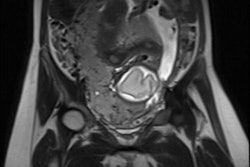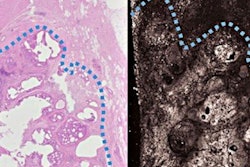Dear AuntMinnie Middle East Insider,
A steady rise in the incidence of invasive placenta has occurred over recent years, largely due to significant growth in the number of cesarean sections. MRI, however, has helped enormously with the detection of this condition, which poses a serious risk to both mother and baby.
Researchers from Saudi Arabia have published new findings in this area, and today we've posted a news report about their results. To get the full details, click here.
Another Saudi group has looked closely at how to eliminate expensive unnecessary scans. Concerned about the large amount of waste, the team has conducted a comprehensive audit of 674 scans (449 CT, 225 MRI) conducted at its hospital in January 2015, focusing on the causes of unnecessary examinations. Click here to find out more.
Lebanese investigators too have published an important new study. They were convinced that it would be useful for physicians to have a tool to easily assess the axial rotation of patients during radiograph acquisition solely from the available lateral pelvic radiograph, so they estimated the pelvic axial rotation of children and adults during x-ray acquisition and recommended that any x-rays in which the axial rotation exceeds 10° should be discarded. Find out more here.
Also, don't miss our case report from Lebanon. Dr. Charbel Saade, PhD, from the American University of Beirut Medical Center, has developed a special interactive case report about a 51-year-old man who presented with atypical chest pain. To test yourself, click here.
Awareness of radiation dose continues to increase throughout the Middle East, and the official launch of ArabSafe is another positive development for the region. Click here for the story.
This letter features only a few of the articles posted over recent weeks on AuntMinnie Middle East. Please scroll through the rest of our coverage below this message.



















